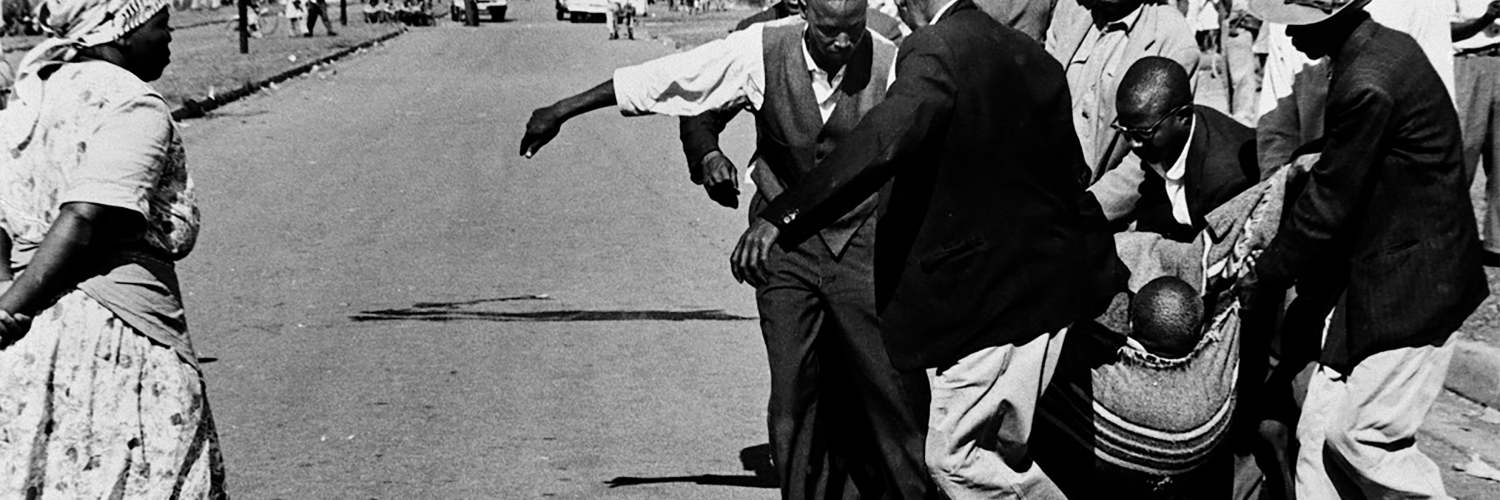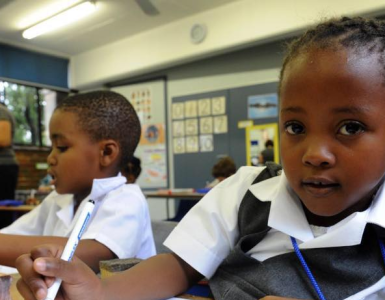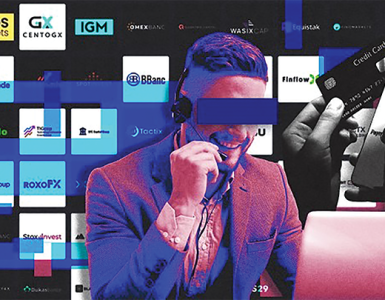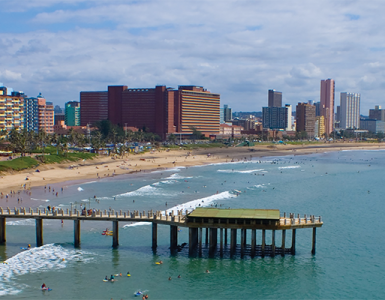Deny: Apartheid was so cruel that it even denied Blacks the right to use public facilities
By Monk Nkomo
The shooting and killing of 69 innocent and unarmed people protesting against the unjust Pass laws in Sharpeville on March 21, 1960, was one of the worst atrocities perpetrated by the apartheid regime, according to President Cyril Ramaphosa.
Addressing a large crowd of ANC supporters at the George Thabe Stadium in Sharpeville on Human Rights Day, Ramaphosa said the killings and the wounding of 180 other protesters by apartheid police, reminded the country of the worst violation of human rights.
He paid tribute to those who perished at the hands of the police for having laid their lives on the line to pave the way for the democracy every South African was enjoying today. Before delivering the keynote address, Ramaphosa had earlier joined the families of the Sharpeville massacre victims in a wreath-laying ceremony at the local Memorial Site.
The President said Black people had travelled a journey of relentless struggle when they were relegated to poverty and indignity by the apartheid regime which dispossessed them of their assets including livestock and land. The Sharpeville massacre attracted worldwide condemnation with the United Nations Security Council adopting its first resolution also condemning the violence perpetrated by the apartheid government. Six years later, the UN General Assembly labelled apartheid a crime against humanity.
‘’In addition to the dreaded Pass laws, Black South Africans were denied even the most basic rights . With a combination of unjust laws and brute force, the racist regime decided where Black people could live, which schools their children could attend, who they could and could not marry, what occupations they could enter and how much they could earn’’. So petty and cruel was apartheid, said Ramaphosa, that there was even a law – the Reservation of Separate Amenities Act- that segregated public facilities along racial lines. ‘’ Whites only’’ or ‘’Blankes net’’ signs were put up at store entrances, on pubic benches, playgrounds and even on the country’s beaches.
Thirty years into democracy, all who lived in South Africa continued to enjoy the shelter and protection of the Bill of Rights as enshrined in the Constitution. ‘’ Our forebears who took up the struggle in defence of liberty and human rights at Sharpeville, enjoyed no such protection. As a result of their struggles, we now enjoy these rights’’, said Ramaphosa.
Over the past three decades, South Africans had worked together to undo the terrible legacy of apartheid. However the effects of apartheid persisted across society – whether it is in health, educational and developmental outcomes, access to basic services and infrastructure or in the racialized nature of poverty, unemployment, inequality and exclusion.
Minister of Justice and Correctional Services, Ronald Lamola, added that the government was also dealing with White racists who believed that Blacks could not rule the country because they could not provide water and electricity to certain communities. These were the very commodities that apartheid regime denied Blacks and preserved for Whites only.
Ramaphosa reiterated that the ANC-led government had done a lot to improve the lives of Black people during the past thirty years. ‘’ The pro-poor policies of the democratic State have lifted millions out of absolute poverty, expanded access to basic services, improved educational and health outcomes for the country’s majority and broadened participation in economic activity.’’
Amid the heavy rainfall which was seen as a sign of good luck, the large crowd cheered and ululated when Ramaphosa also announced that monthly social grants would be increased from next month. Another speaker, Gauteng Premier, Panyaza Lesufi ,announced that his province would unveil a massive skills development and training programme for hundreds of the unemployed people next month. A monthly stipened of about R3500 would also be paid for those who would be in training.
‘’As we head into our country’s 7th democratic elections this year, we are further reminded of the fundamental freedoms South Africans enjoy today.These include freedom of conscience and opinion, the right to assembly and demonstration, freedom of association and wide-ranging political rights. We also have a free, independent media that plays a critical role in promoting transparency and accountability’’, Ramaphosa said.
‘PROGRESS HAS BEEN MADE TO DISMANTLE RACIST POLICIES’
Degrade: Divide and rule tore apart the social fabric of black communities and degraded their humanity -— Ramaphosa
By Monk Nkomo
South Africa was a pariah State before the advent of democracy in 1994 when discrimination was at the core of government policy and the country was infamous for violating basic rights of Black people who were the majority of its citizens.
This was said by President Cyril Ramaphosa during his keynote address at the three-day National Conference on 30 years of Human Rights in South Africa which was held in Ekurhuleni this week. The event was organized by the Department of Justice and Correctional Services.
‘’Apartheid tore the social fabric of our communities apart as it violated and degraded the basic humanity of many of our people through humiliation and oppression’’, said Ramaphosa.
The country’s Black majority were deprived of their land, their freedom and their basic human rights. Families were broken up as heads of households had to leave their families behind to go and work in the mines or move to towns to earn a livelihood.
Ramaphosa said the conference was a reflection on 30 years of the promotion of and respect to human rights in South Africa. The adoption of our Constitution with its Bill of Rights by the Constitutional Assembly on May 8, 1996, was a great moment in the struggle to achieve a free and equal society – a society committed to democracy, the rule of law and the protection of human rights.
‘’ Before the advent of democracy, our country was defined by racism, segregation and discrimination’’.
The indigenous and customary legal systems of Black people were up-ended, suppressed and dismissed as harmful and uncivilized. ‘’ Given all these destructive effects , the negation and denial of the human rights of millions of people, we can be justifiably proud of how far we have come in advancing our Constitutional , human rights-based order over the past 30 years’’.
Human rights, Ramaphosa added, were the basic rights that all human beings should have. Human rights embodied the key values of our society such as equality, dignity and fairness and defined our nationhood. He conceded that there had been challenges and shortcomings over the past 30 years and the government had a long way to go towards completely fulfilling the promise of the Constitution. The country however, should not shy away from the immense progress that had been made so far.
The government’s commitment to advancing the human rights of the South Africans, should motivate them to address the challenges that many of the people still faced. These included poverty and unemployment.
The social protection measures the government had put in place and lift poor people out of poverty, had made a tremendous difference over the past 30 years although much still needed to be done. Ramaphosa also lamented the poor state of most of the country’s municipalities and said they continued being plagued by poor service delivery. Corruption also deprived communities of the fulfilment of their rights.
‘’The creation of employment for our people and promoting the rights that are enshrined in our Constitution, are necessary to improve lives and lift millions out of poverty and despair.’’
Another speaker, Ronald Lamola, Minister of Justice and Correctional Services, said the core essence of South Africa’s Constitutional democracy was anchored in the need to ensure an improved quality of life for all and to unlock the potential of each person.
It was crucial to remember the sacrifices made during the struggle against the oppressive apartheid regime. Lamola reminded South Africans about the tragic events that included the killing of 69 Black people who were gunned down by apartheid police in Sharpeville on March 21, 1960 while they were demonstrating against the carrying of the notorious dompas. Nearly 200 people were injured. In another incident, a total 35 people were shot dead during a peaceful protest in Langa township on March 21, 1985.
‘’The peaceful protests against apartheid laws, the violence inflicted on innocent protesters and the global outrage that followed, shaped our nation’s history and commitment to human rights’’.
National Assembly Speaker, Nosiviwe Mapisa- Nqakula, in her address, said despite considerable progress having been made over the past few decades, it was still difficult for South African women to fully enjoy their rights. South Africa had one of the highest rates of gender-based violence in the world with women and girls often being subjected to physical, sexual and emotional abuse.
‘’This issue does not only affect women’s fundamental rights but also perpetuates a culture of fear and silence that further marginalizes them.’’
The other challenge facing women was the persistent gender wage gap and limited economic opportunities. Despite legal frameworks that promoted gender equality in the workplace, women in South Africa were still being paid less than their male counterparts for the same work.





























